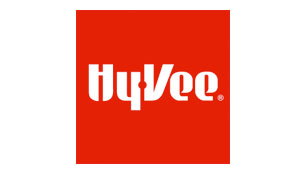What it means…
Dwolla's decision to stay in Des Moines

Dwolla Corp. earlier this month raised $5 million in funding and made a commitment to stay in Des Moines.
The decision for Dwolla, a mobile-phone payment system founded by Ben Milne that currently completes more than $1 million in transactions per day, is a bit unusual. Typically, said local start-up expert Christian Renaud, a funding deal like this would require the company to move to a more technology-heavy area such as Silicon Valley in California. Dwolla, though, will stay put, despite having New York City-based venture capital firm Union Square Ventures as the lead investor in the deal.
Those within the Des Moines tech community consider Dwolla’s decision to stay in the city a big deal, as the company represents a successful start-up that is making strides without having to leave its roots.
The Business Record asked local players within the start-up community to address the impact of Dwolla’s decision to stay in Des Moines and to speculate on whether it was a smart business decision.
What impact does Dwolla’s decision to stay have on the local start-up community?
Colwell:
“It’s a wonderful thing for the start-up community. Start-ups beget start-ups. You go back in Silicon Valley’s history, it was three or four start-ups. I think you’ll see more people start a company and say ‘wow, I’m pretty impressed with Dwolla, I know some of the people that work there, and I can do that too.’ Let’s assume Dwolla will become very sucessful, hire a lot of people and grow like crazy. Some of those people (within the company) will say ‘maybe I’ll start my own deal,’ just like how Microsoft, Google and others have spun people out, and that’s a good thing.
“I think from an outside standpoint it does more to put Des Moines on the map. To get the kind of venture capital backing they got, they got the best of the best. That just sends a powerful signal of ‘hey, there’s something serious going on in Des Moines.’
“I think it’s a huge statement for Des Moines. I don’t think we can overestimate how huge of a statement it is, that one of the biggest venture firms in the country just sank a lot of money into a local company here and said ‘We’re OK with you staying in Des Moines.’”
Dwyer:
“I think it’s huge. I think it would have been a huge blow if Dwolla would have come out and said they were moving to the Valley or something like that. I think Ben has been one of the biggest proponents of the Silicon Prairie (a term that refers to Iowa and surrounding states) over the last two years, and spreading the word that you can do it here and you don’t have to move out to Silicon Valley. I think it is one of those companies that a lot of people look up to around here. To secure $5 million from a pretty major venture capital firm, that’s huge, right? If they can do it, why not somebody else? There’s no reason to think that you have to move away from here to do something awesome.
“Speaking as an entrepreneur, whenever we have talked to people from Silicon Valley, the first question they always ask is ‘Why are you based in Des Moines, Iowa? Why don’t you move to the Valley?’ Obviously they’re more developed and there’s easier access to capital out there, and they have a lot of things because they’ve been building up that ecosystem for 30 or 40 years. I think we have the makings of that.”
Renaud:
“I think one really positive outcome of this, he’s keeping the company here and he’s going to create jobs here. It’s going to be harder for the rest of us to get developers because Ben is going to suck them all up, but we’ll live with that. The second thing is, when they do have an exit (the statistically likely move), the amount of equity that is still retained by Dwolla will then flow back into the community locally, as opposed to Facebook, where a whole bunch of people all over Palo Alto are putting the funds back in someplace other than where they originally started at Harvard. So Dwolla will repatriate the funds locally.
“I think this will be a wake-up call for local money. Local investors need to understand this is a global marketplace. When Union Street and all the other people make an insane amount of money off Dwolla and Ben’s efforts, there will be a lot of people going, ‘I wish I would have been part of that deal.’ They’ll remember that they didn’t return his first call, or gave him really obscene terms. Hopefully it will allow them to change their behavior moving forward, so the next Dwolla that comes forward will have a little easier road.”
Is staying in Des Moines a good business decision for Dwolla?
Renaud:
“Ben taking money that allows him to stay in Des Moines is indicative of the amount of value that Dwolla has. He’s talked a number of times about that big long investor list, people who want to invest from venture investment firms. He could be very selective. He was able to negotiate that it needed to stay a Des Moines company because quite frankly, I would have put 95 percent odds that (a potential investor) was going to say ‘I’ll give you $10 million or $20 million, but you’re coming to Palo Alto because there’s no reason that I want to hop on a plane to come to your board meetings.’ So the fact that he was able to negotiate that was remarkable.
“If there is a next round – which there probably won’t be, is my guess – it’s going to make it that much harder. And any potential acquisition or merger I think would have been easier if it was on the coast, because you’re part of a conversation there, where you’re not part of a conversation in the Midwest. Ben knows that. He made an educated decision.
“Ben did so much diligence, and he and I have had so many conversations about this for so long, about the pros and cons of staying here, and at what point do you outgrow Des Moines? It’s a calculated risk, and he’s weighed all the factors. He’s a very, very smart guy.”
Milne:
“I don’t think there was really any overarching vision for why Des Moines should work. I think there’s the fact that Des Moines is working. Don’t fix it if it’s not broken. I hate to say it, but it really is that straightforward. Our team is here, their families are here, everybody’s jobs are here, their homes are here. It doesn’t make any sense to uproot all of that just for the sake of moving it. If the company can grow here, it should, and if there ever comes a point where we can’t grow any more here and we need to be elsewhere, we will be.
“I don’t think it’s a risky move to keep the company here. Do I think it’s going to make the company less interesting, less bold, less big if the company starts on its next journey from Iowa? I don’t think that starting that journey from Iowa is a risky move. I think it’s a risky move to move half the company, lose half of it. Starting over from scratch building another team in another area would be a risky move.”
Colwell:
“You could probably argue that there are other financial centers that may have given them certain access. But Des Moines is a strong financial center. You can argue there are stronger tech scenes. But Des Moines is a fairly strong tech scene and the cost of talent in the bigger tech scenes can be as much as two times the price. So because they’re already here, the cost of moving the company, the potential loss of people, the interruption, the disruption – keep in mind they’re trying to move at light speed. They don’t have time to move facilities. That’d be a waste of time. That’s the way I look at it, is what did that get me? I don’t think there’s a strong argument that can be made, beyond investor comfort level, that moving Dwolla would have some substantial impact.”











